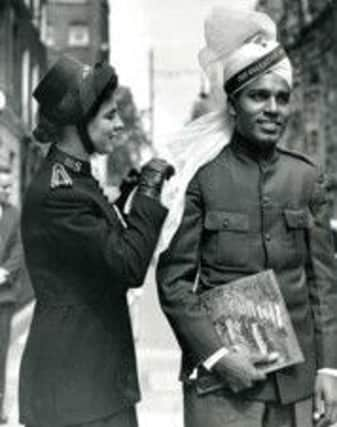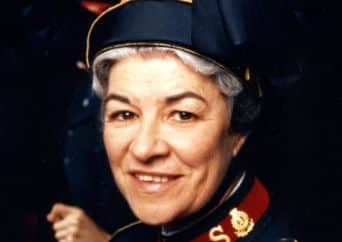Obituary: Eva Burrows, Salvation Army leader


Eva Burrows was the indomitable 13th General of the Salvation Army and the first elected female leader of the Army. Commissioned as an officer in 1951, she served variously as principal of the International College for Officers in London and the army territorial commander in Sri Lanka. Aged 47, she became the youngest member of the International High Council.
In 1979 she was appointed to head the Army’s offices in Scotland and immediately, with her compelling enthusiasm and commitment, made a strong impression. Within weeks she was taken to a Glasgow Hospital after she had suffered a stroke and as her health recovered Burrows said: “I got to know all those Glaswegian women – they were such a chatty lot.”
Advertisement
Hide AdAdvertisement
Hide AdIn an interview some years later Burrows said: “I was very interested to go to Scotland as my father had been born there and migrated to Australia. I made the wonderful discovery that Scottish people are so warm and welcoming, very open and relaxed in their relationships with people.


“Shortly after I arrived I was invited to speak on the Christmas Eve service on the television, which was held in St George’s Square in Glasgow. When I walked down the street in Glasgow or anywhere, people would come up and say, ‘Oh, I was so glad to see you and welcome to Scotland, hope you’ll be happy.’”
Her time in Scotland lasted only three years but she filled them with work throughout the country – travelling from the Borders to the Shetland Islands. She spread the gospel and made her colleagues understand that they had to spread God’s word and “not be too content enjoying worship for ourselves”.
Burrows cultivated a high profile for the Salvation Army and increased both its charity and evangelical work. It was all done with a smile, unbridled enthusiasm and devotion. She was an inspirational leader who did much to alleviate the pain and suffering of the homeless, vulnerable and elderly.
Her work in Scotland has been fittingly remembered by the opening, in 2000, of The Eva Burrows Centre in Cambuslang, a 32-room residential and day care service for older people. Its focus exemplifies her life’s work and it is a suitable tribute to Burrows, whose unflinching dedication to help others was a central factor in her life.
One of her proudest moments in Scotland came when Pope John Paul II visited Glasgow in 1982. Burrows welcomed His Holiness with the Army salute – the index finger of the right hand held upright and a broad smile. One headline the next day read: “Commissioner Burrows, the hallejuah lassie, making a feminine point to His Holiness.”
She became well known in Glasgow where a former Lord Provost nicknamed Burrows “effervescent Eva” and the US Baptist minister Billy Graham commended her as one of the world’s great spiritual leaders.
Eva Evelyn Burrows was the eighth of nine children born in Newcastle, Australia, to Salvation Army officers Robert and Ella Burrows. After attending Brisbane State High School she read History and English at Queensland University. On graduating she entered the Salvation Army Training College in London and was commissioned as an officer in 1951, serving initially in London.
Advertisement
Hide AdAdvertisement
Hide AdAged 47, she became the youngest member of the International High Council and served in Zimbabwe, in the Army’s Social Services for Women in Britain and then in Sri Lanka.
After her time in Scotland Burrows was elected a General in the Army and initiated many councils to enquire into pressing social issues of the day, including genetic engineering, euthanasia, capital punishment and homosexuality.
In 1990 she presided over the International Congress in London which celebrated the Army’s work in songs, Bible readings and discussions. She wrote A Field For Exploits: Training Leaders For The Salvation Army.
In 1993 she was marooned on Radio 4’s Desert Island Discs and chose as her “must-have” record Bach’s St Matthew Passion. Her book was the Faber Book of Religious Verse and her luxury was Scrabble with a pencil and paper.
She retired to Melbourne and continued to work on behalf of others and preach the gospel. Her memories of Scotland lingered on. She recalled: “The Scots are very vigorous Christians. Somebody has said that the Scots are all brought up on the psalms and rolled oats. They have a great religious history. And I found the Christians in Scotland very energetic and I enjoyed my fellowship with them in the Church of Scotland in particular.”
Burrows was a popular and dedicated member of the Salvation Army. Her warmth, charm and generous spirit are remembered with joy by many.
In 1994, she was appointed a Companion of the Order of Australia. She never married.